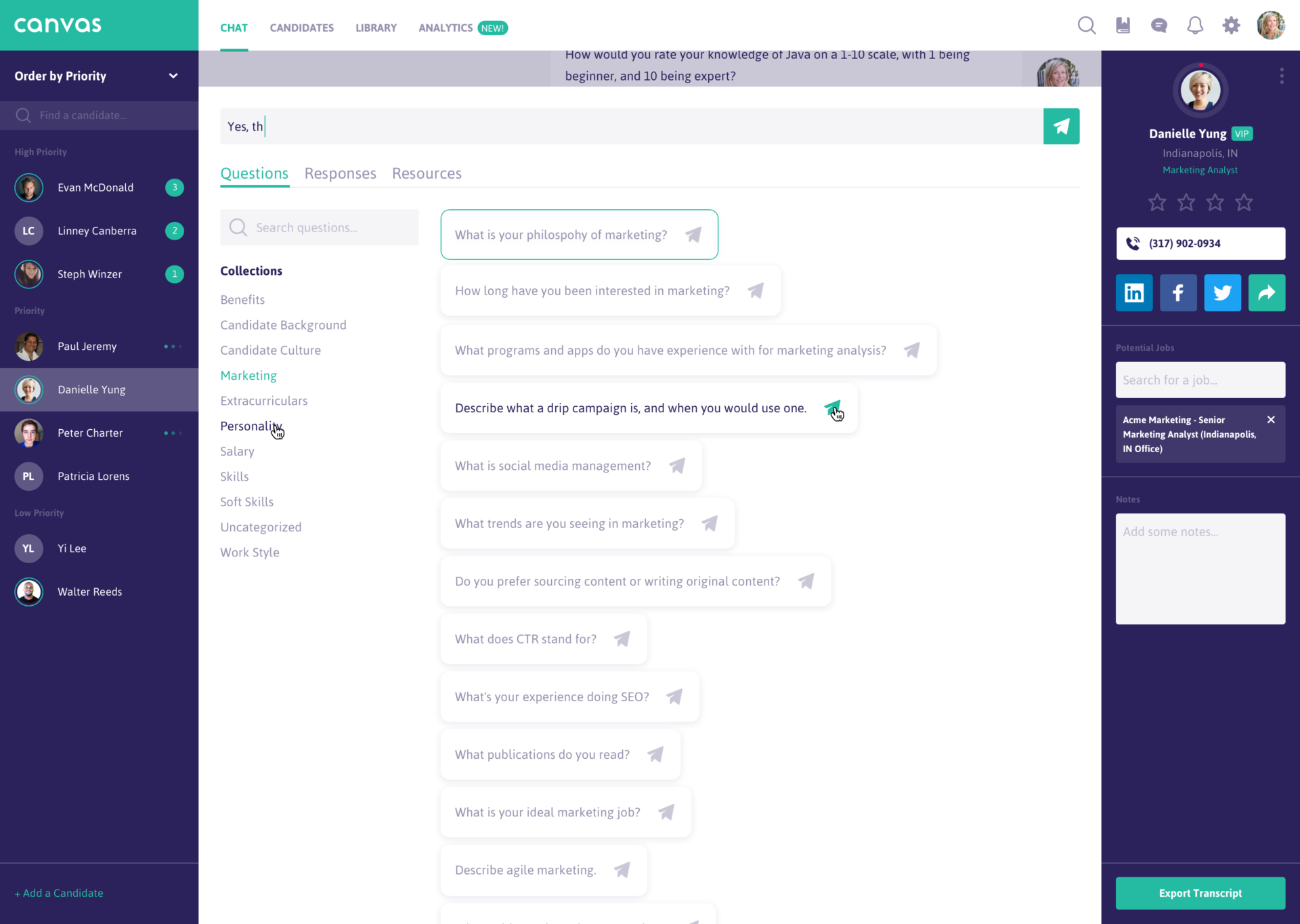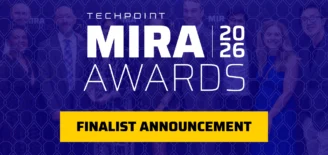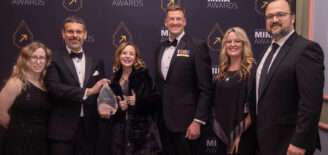Text-based interviewing pioneers launch Canvas platform, apps
According to the 2017 Yello Recruiting Study, if your goal is to hire the best Millennial and Gen Z employees — which, let’s face it, that’s pretty much everybody’s goal in today’s tech and tech-enabled recruiting landscape — time is your enemy and texting is your friend with these workforce generations.
The study of 1,400 recent grads found that 86 percent of Millennial and Gen Z job candidates felt positively when text messages were used during the interview process (+8% over 2016), and 74 percent said delays in receiving an offer is the reason they turned down that opportunity (+5% over 2016).
Indianapolis-based startup Canvas has solved several of the most challenging aspects of text-based interviewing with an enterprise-grade platform of the same name that launches today. Canvas is custom-built for an audience that is quick to avoid talking on the phone and it enables recruiters to screen significantly more job candidates at the top of the funnel via text (compared to doing phone interviews) while simultaneously keeping comprehensive records and promoting their employment brand.
The founding team behind Canvas includes three alumni from managed IT company Apparatus, which sold for $34.2 million to Virtusa in 2015 — Chief Talent Officer Kelly Lavin, Chief Operating Officer Jared Adams, and CEO Aman Brar. Of note, Tom Linebarger, chairman and CEO of Cummins (NYSE: CMI) is a member of the Canvas board of directors with co-founders Adams and Brar.

Aman BrarCEO, Canvas
“The way millennials communicate in the workplace as well as in their personal lives has fundamentally transformed to be more text and chat focused. We saw this as we were growing Apparatus from 50 to 100 to over 1000 employees following the acquisition, and we saw all kinds of challenges that being so phone-focused had in the recruiting pipeline, so that was the initial problem we were really fired up to go out and solve.”
Here’s how it works: once a recruiter obtains a candidate’s mobile phone number, the entire screening interview process can take place and be fully documented inside the Canvas platform before moving on to live interviews. Candidates receive and answer questions from recruiters via standard text messages — they don’t have to download anything — while recruiters have the option to use the Canvas desktop or mobile app version to facilitate the interviews.

“Imagine in the world of dating like with match.com or eHarmony, what if you had to call everyone you were interested in dating as a first introduction? It just doesn’t make any sense, it doesn’t scale and it’s pretty uncomfortable for both of you,” Brar said. But those sites have proven that starting a process purely via text could lead to your partner in life, so we think it could lead to your next project manager, sales associate or software engineer, and we’re already seeing that play out with our early adopters.”
Some of Canvas’ unique, time-saving features include libraries for branded culture videos, benefits and job descriptions that can be sent straight to the candidate’s mobile phone, and access to a portfolio of interview questions that can be sent with the click of a button instead of having to retype common questions recruiters ask all candidates. The platform’s artificial intelligence also recommends to recruiters the right message at the right time for each candidate’s journey in the interview process.
Because Canvas documents everything in real time, recruiters don’t have to deal with taking notes. This is not only a benefit for the recruiter, but for everyone involved in the employment process because interview transcripts and candidate feedback, rating and placement recommendations can easily be shared.


Canvas is sold via subscription and the platform is currently being used for recruiting by early adopters spanning from startups to Fortune 500 companies located in Silicon Valley and the Midwest. Canvas has raised $1.7 million to date in an oversubscribed seed-stage funding round from private investors.
Canvas also announced members of its impressive talent leadership advisory board including Bridget Boyle, VP & Site Head Human Resources for Roche Diagnostics; Scott Day, senior vice president of people and culture for OpenTable and former head of talent strategy for Airbnb; Jeff Perkins, founder of Huntbridge and former vice president of human resources at SpaceX; and Todd Richardson, co-founder of Emplify and former executive vice president of administration for Salesforce.


